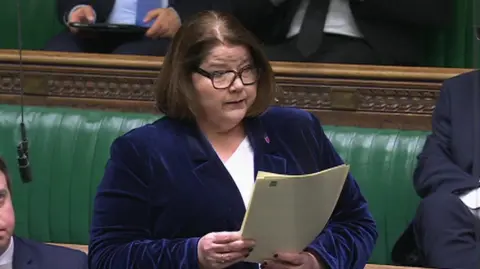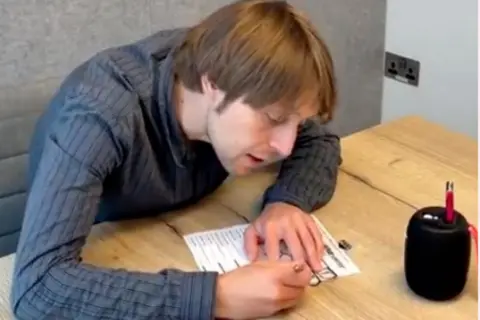Blind voters 'humiliated' by lack of support - MP
 BBC
BBCBlind and partially sighted people are being left "humiliated" and unsure they have voted correctly because of a lack of support at polling stations, according to an MP.
Carlisle's Julie Minns said many with visual impairments were unable to vote without someone else knowing their choice.
The Labour MP has put forward a proposed new law to ensure there are tactile and audio aids for blind voters in polling stations.
The Electoral Commission and the government have been approached for comment.
Speaking in the House of Commons, Minns cited research by the Royal National Institute of Blind People (RNIB), which found only about a quarter of blind and partially sighted people could vote "independently and in secret".
She described how a partially sighted constituent had been forced to ask a clerk to fold his ballot paper between candidates' names and have staff read them out, at last year's general election.
 RNIB
RNIBMinns said many with sight loss had to "tell another person their vote" to help them fill in a ballot paper, but that tactile and audio aids to allow independent voting were "low-cost".
"Blind voters report feeling humiliated and let down by the system, having to share their vote out loud in public and in some cases not being certain who they voted for," she told the Commons.
Her Ten Minute Rule Bill - which allows a backbench MP to make their case for a new Bill in a speech lasting up to 10 minutes - is unlikely to become law, but is a chance to attract support for her proposals.
Follow BBC Cumbria on X, Facebook, Nextdoor and Instagram. Send your story ideas to [email protected].
